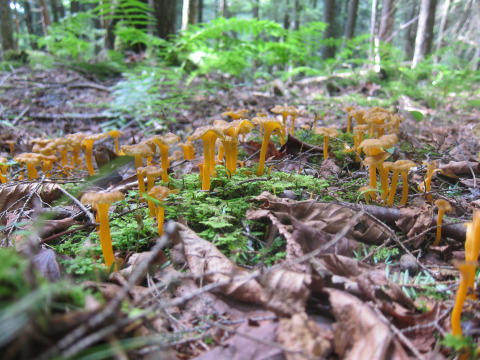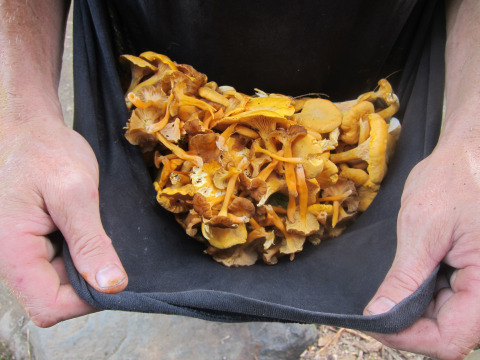Something To Chew On
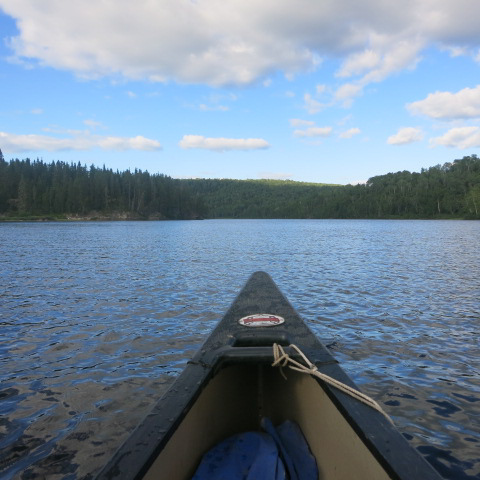
Oh, Canada! Photo by Rye
The boys returned home from Canada full of stories and fish. For five days they slept in a remote wall tent, fished all day, and lived off what they caught. If they missed Penny and me, they would not say, and I believe they would have been happy to stay up there for another week or more. Probably much more. They are fiercely drawn to the wild, undeterred by the mild discomforts and deprivations that living in nature demands. When they are not in the wild, they are reading about it. When they are not reading about it, they are planning for it or recounting it. It seems almost inevitable that we will lose them to a place of wider spaces and less human intrusion (they talk as if we live in suburbia), although of course much could change over the coming half-decade. But from what we’ve seen over the past few years, it’s hard to believe the die have not been cast. I suppose time will tell, as it generally does.
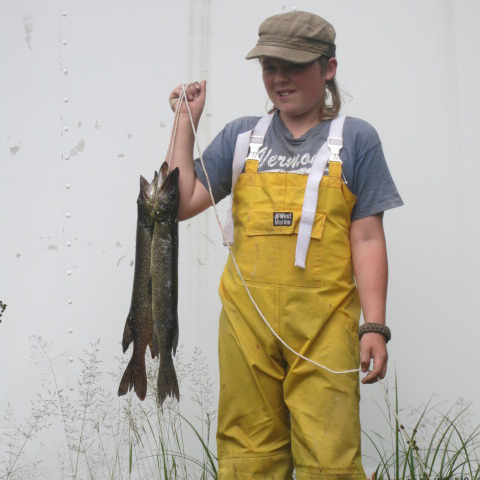
Catch of the day. Photo by Rye
The day after the boys’ return, I drove to Woodstock, VT for the Bookstock literary festival, where I was to do a short reading and presentation. It was my first live reading from Home Grown, and I was a little anxious; I literally had not looked at the material for nearly six months, ever since I handed in the final round of edits. This the way it goes for me: By the time I’m finished with a project of such scope, I’m pretty well sick of it and furthermore certain it’s a load of rubbish. It’s inevitable, I think. You can only read something so many times before the varnish wears thin.
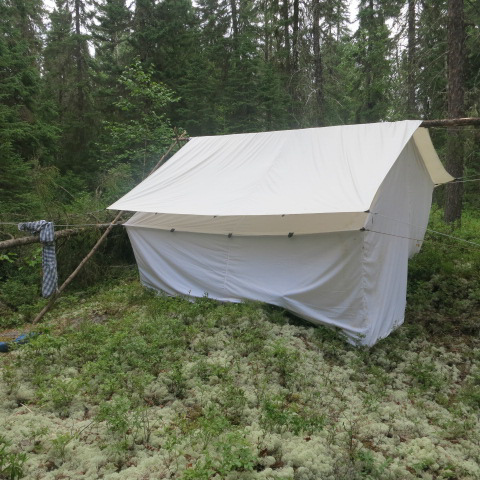
Home sweet home. Photo by Rye
Anyway, the reading went well, and I was pleased to not hate the material quite so much as I’d feared. Indeed, there might even have been a handful of halfway decent sentences tucked into the selection I chose. For that, I am grateful.
But that’s not what I wanted to talk about, because on the way down to Woodstock, I listened to the radio and on the radio I heard a call-in talk show about childhood wellbeing in Vermont. And it made me really sad.
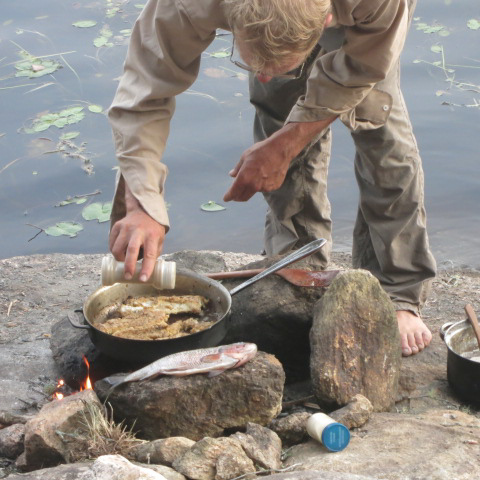
Nate on dinner duty. Photo by Rye
I will cut to the chase and say that the discussion focused primarily on poverty and on the urgent need to create economic opportunities for Vermont’s underprivileged families because, according to the experts convened for the show, the best way to improve childhood wellbeing in Vermont is to eradicate poverty. Apparently, it all hinges on money.
Quickly, a personal aside: According strictly to financial metrics, we are poor. Our income last year placed us just below the poverty line for a family of four, a line we’ve flirted with for many years, although 2013 was the first time we’ve officially dipped below it. As anyone who reads this space knows, we do not consider ourselves poor in any sense of the word, but according to statistics and official metrics, we are. I mention this simply to provide a bit more context on my views regarding childhood wellbeing and its relationship to poverty.
I’m going to cut to the chase again: The problem isn’t lack of money. I mean, maybe it is to a certain extent; hell, we all need a little scratch to get by. But the bigger problem is that these families simply don’t have the resources to prosper outside the moneyed economy. They don’t have access to land. Or maybe they do, but they don’t have the skills to utilize that access. Or maybe they have those, too, but because they’re working two minimum wage jobs in their futile quest to keep pace with the economic treadmill, they simply don’t have the time to use these skills on their own behalf.
I thought about this a lot this weekend, as we gathered numerous pounds of chanterelle mushrooms from the woods below our house. I thought about how much of our prosperity is dependent on the skills and resources we’ve been so fortunate to cultivate and collect over the past 20 years or so. I thought about how, if we didn’t have these skills and resources, we truly would be poor. Struggling. I thought about how much of our freedom is based on nothing more than the simple fact that we are able to equal so many of our needs without relying on others. Or without relying on industry, anyway, because of course we rely on others. We rely on lots and lots of others, just as others rely on us. This interpersonal reliance is ok. It is as it should be.
We can live this way because we have land and because on that land, we have cultivated both the soil and our skills. We can do this because we have generous friends who have shown us how to do many of the things we once could not. We can do this because we do not expect to have more – or much more, anyway – than we need.
I’m going to cut to the chase once more (last time, I promise!): So long as we believe that the only way to improve childhood (or for that matter, adult) wellbeing is to lift everyone out of poverty, the treadmill continues. No, it doesn’t just continue: It speeds up. Steepens. Because for everyone lifted, someone, somewhere, is lowered. They may not live in our neighborhoods, or even our states. They may not live in our nation. But just because we cannot see them, the truth remains: There cannot be only winners, because if there are only winners, there are no winners.
There: Chew on that one awhile.

Ben Hewitt's Blog
- Ben Hewitt's profile
- 37 followers


